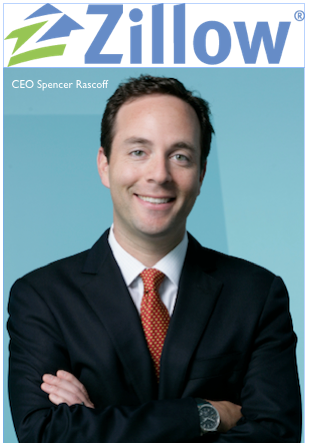
In Adam Bryant’s Corner Office column on 22 December 2013, he interviewed Spencer Rascoff, CEO of Zillow. The full interview can be found here. Zillow is an online real estate database, aimed at providing a marketplace to help people find information about home values. The company was founded in 2005.
Like many other subjects of Corner Office interviews, Rascoff was an early entrepreneur. He describes his first business venture, at age 10, selling cookies and other baked goods to friends and family. His first management role came at Goldman Sachs, at age 21.
I really like Rascoff’s answer when asked about common mistakes made by first-time managers:
The biggest mistake I tend to see from junior managers is not hiring people who are better than them. It might be subconscious — people don’t want to be shown up by one of their direct reports — or maybe they don’t know how to identify talent.
This is part of a larger management theme: managers who are confident and secure typically make better decisions than those who are uncertain or lack confidence. Managers who feel threatened may be reluctant to hire people who are likely to outshine them.
Rascoff provides an additional, more introspective response to the same “common mistakes” question:
The mistake I have most commonly made, especially earlier in my career, was not acting quickly enough when I knew in my gut that somebody probably wasn’t the best person for a role. I like to be liked, but sometimes managing people is not a popularity contest. So when a manager realizes that somebody is not right for their job, they need to act quickly — not just for their own success and survival, but also for the overall team.
Again, I find Rascoff to be very insightful here. New managers are often reluctant to replace (or reassign) employees who aren’t being successful. The fear of not being liked frequently backfires, since other employees recognize the individual who isn’t performing and conclude, if no action is taken, that the manager isn’t managing effectively.
Finally, Bryant asks Rascoff how he approaches hiring and what questions he asks.
What are you most proud of so far in your career? And if you ran your current company, what are some things you would change? What I’m looking for with that question is whether people “level up.” Usually their answer is very narrow and focused on their particular area. Successful interviewees have broader and more strategic answers.
These kinds of open-ended questions are good ones, in my experience. Candidates who think of (and can describe) a broad perspective in their responses are likely to be more strategic and more creative employees. “What are you most proud of?” is a relatively common interview question, but effective – there’s no obvious right answer and it can provide good insight into the candidate’s true achievements (rather than just bullet points on a resume). Similarly, “What would you change if you ran your current company?” can reveal a candidate’s awareness of (and thoughtfulness about) areas outside her own personal area of responsibility.
Rascoff continues:
I then usually ask them to describe the job they’re interviewing for, which is a good question for several reasons. First, it helps force them to articulate what the job description is and how their skills would fit into that job description. Second, it helps me learn their level of interest in the company. It immediately becomes apparent whether they’ve done the research and whether they are really serious. I also ask where they think their career will go in the next five or 10 years.
Most of this is really good, although I’m not thrilled with the last question. Taken properly, the question can reveal a bit about long-term thinking and ambition. However, as I look back at my own career (and those of colleagues I’ve known), I find that very few people can predict what might happen over several years. Especially in a technology field, the landscape changes too quickly and opportunities come up too frequently for there to be much predictability. Still, the question can be useful, if the response is interpreted more abstractly.